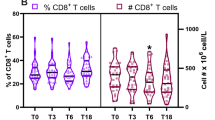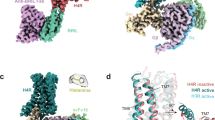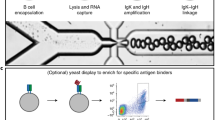Abstract
The present study was designed to delineate the immunomodulatory role of histamine receptors (H1- and H2-) on induction of antibody response to sheep red blood cells (SRBC), as well as the antibody generation profile, in rabbit system, systemically. The rabbits in two groups received pheniramine (H1-receptor antagonist) and ranitidine (H2-receptor antagonist), respectively, via intramuscular route and were immunized with SRBC intravenously to evaluate suppression or enhancement of antibody responses in sem. A third, control group, received vehicle and were immunized in a similar manner. Histamine released from effector cells (mast cells and basophils) in vivo during inflammatory reactions could influence a detectable antibody response to SRBC as early as day 7-postimmunization (post-I), which lasted until day 28- post-I. Pheniramine-treated rabbits had significantly (&42;Pa ≤ 0.05 and &42;&42;Pa ≤ 0.01) more suppressed total serum antibody (IgM + IgG) to SRBC as compared to ranitidine-treated ad cotrol rabbits, while ranitidine-treated rabbits showed different pattern (suppressed or enhanced) during the whole study period. Ranitidine suppressed total antibody level at days 7- and 14- post-I, and enhanced at days 21- and 28- post-I. IgM suppression at day 7- and enhancement at days 14-, 21- and 28- post-I, while IgG suppression during whole study period, as compared to control group was significant (&42;Pa ≤ 0.05 and &42;&42;Pa ≤ 0.01) as assessed by direct hemagglutination assay&42; ad whole SBC-ELISA method&42;&42;. Here we report that histamine receptor type 2 (H2R)-antagonists have a dominant role on immunosuppression and in immunoregulation of humoral immune responses. Histamine receptor type 2 (H2R)-antagonists are mainly involved in B cell differentiation and proliferation over histamine receptor type 1 (H1R)-antagonists.
Similar content being viewed by others
Article PDF
Author information
Authors and Affiliations
Corresponding author
Rights and permissions
About this article
Cite this article
Tripathi, T., Shahid, M., Siddiqui, M. et al. Role and immunomodulatory profile of histamine receptors by H1 and H2 antagonists. Nat Prec (2008). https://doi.org/10.1038/npre.2008.1547.1
Received:
Accepted:
Published:
DOI: https://doi.org/10.1038/npre.2008.1547.1



